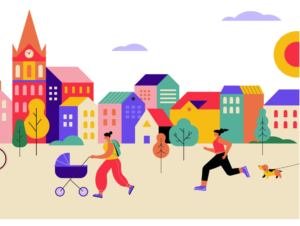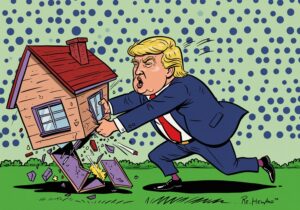 The data from local elections has huge potential, which often goes unused, writes Glen Ocsko, head of local government at Made Tech.
The data from local elections has huge potential, which often goes unused, writes Glen Ocsko, head of local government at Made Tech.
Local elections are fast approaching. On the 7 May, people across the UK will be heading to polling stations to cast their votes and have their say on who and how they want their cities, towns and communities run.
Whilst being an important democratic exercise, the local elections also provide an opportunity for councils to gain a greater insight into their population voting patterns, such as who is and isn’t registered to vote, the location of voters and where turnout is high or low. This information has huge potential if used correctly, yet in most cases it is simply disregarded or not delved into in any depth with the attention and intrigue that it deserves.
If harnessed in the right way this data could help tackle a range of issues, and make local elections even more inclusive, democratic processes.
Local elections have increasingly become renowned for their low voter turnout. This was seen in 2018, where just over one in three registered voters took part in the elections, with this number being as low as one in four in some areas resulting in far fewer views being represented in local councils.
Using data gathered from the upcoming elections, councils can look to tackle this issue ahead of the next round of elections through identifying why and where voter registration is low and targeting these areas to encourage people to register. As much as this is already done to a degree, increasing levels of granularity around data can allow specific, targeted interventions to be put in place preemptively based on a range of demographics, and could allow councils to work with VCS organisations to really focus on specific user groups who – for whatever reason – aren’t engaging as much as others.
To make the most of their election data, local authorities need to have in place the right digital platforms that can help them gather and collate this information and then properly extract and analyse it. Solutions such as data lakes can allow councils to pool large swathes of information into one place and for specific parts of this data to be extracted and analysed. This is where patterns or concerns can be spotted; these can then be explored and solutions put in place so that, for elections, improvements are in place.
This ability to collate vast data sets also means that further information, whether that’s on an area’s voting population or details on other cities’ or towns’ local elections, can be shared more widely to further understand voting patterns and what different councils are doing right or wrong in order for them to learn from each other.
The benefits of taking a more data focussed approach to local democracy don’t have to end on election day, though; longer term benefits can also be expanded to understand the impact of policy decisions in real time, as well as enhancing accountability when it comes to manifesto pledges made by elected officials. Councils already hold data on public services, housing, environmental protection and more; being able to offer vastly improved access to this data and analyse this information would give voters insight into whether their elected officials are actually delivering on their promises, while at the same time providing councillors details on what they need to do to ensure they can meet their manifesto pledges once in office.
Local elections have a huge say on how our communities will be organised and run over the next four years. As such, we need to ensure as many people as possible are able to take part in this democratic process so their voices are heard and represented, while also ensuring that elected officials can keep their pledges and be held to account if they do not. Through taking a digital first approach, putting the right solutions in place so that data can be gathered, shared, understood and acted upon, we can make huge strides to creating a fairer, more inclusive and more democratic society now and in the future.
Photo Credit – Pixabay

















Leave a Reply